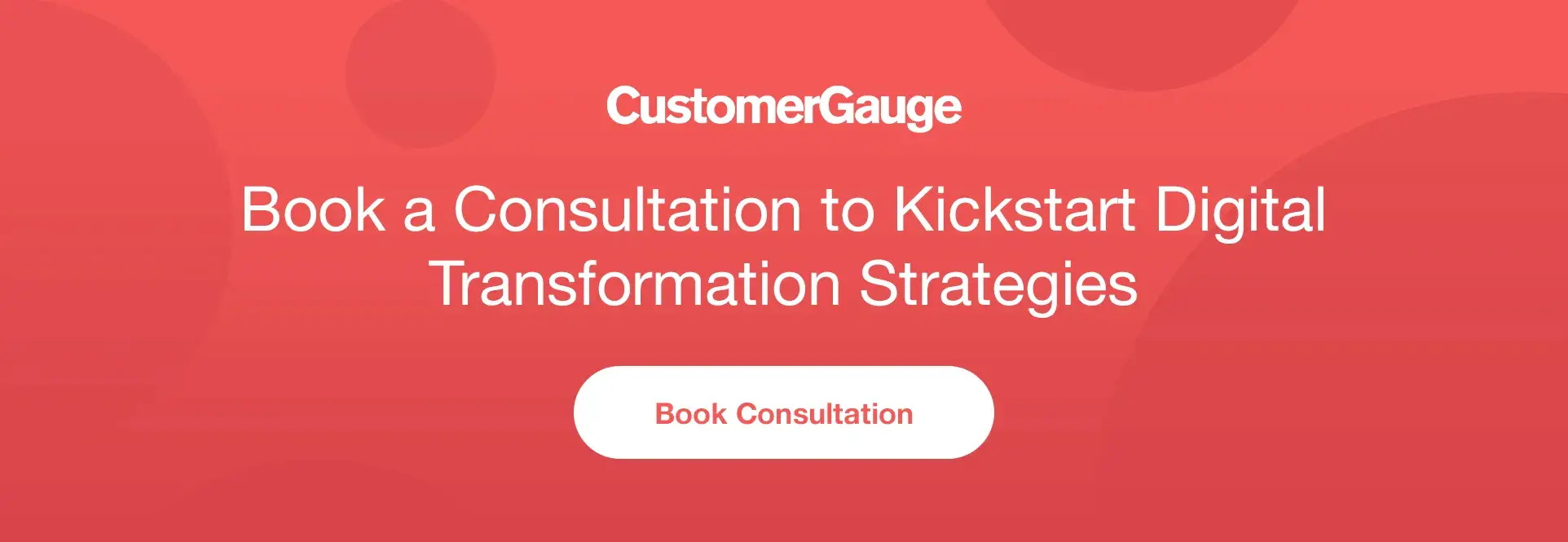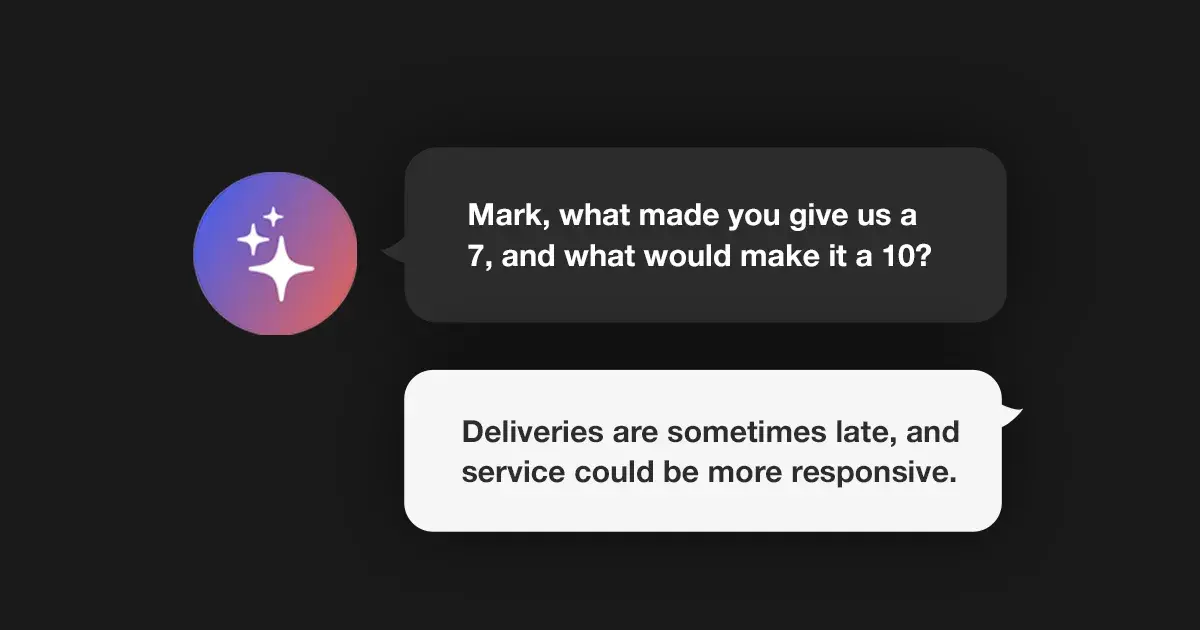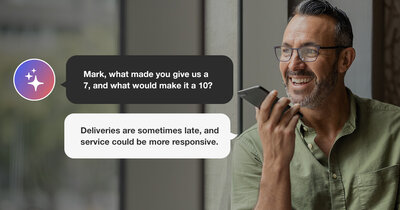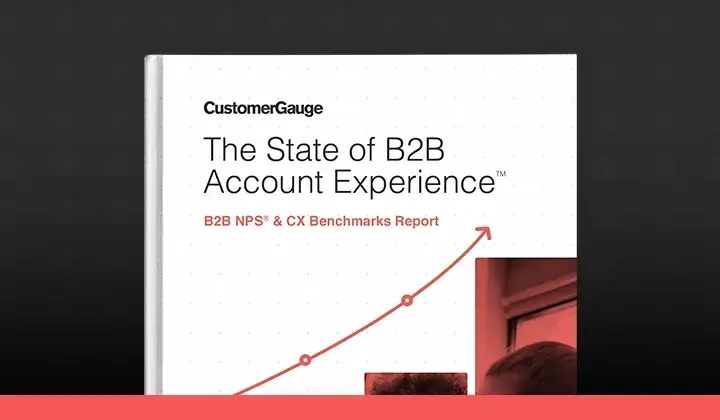As we navigate this new digital age in Consumer Packaged Goods (CPG) and begin planning for 2025 initiatives, we have learned two things to be true to outpace competitors.
CPG companies must:
Fully embrace digital transformation
Embed it deeply within their business strategies across the organization
This sentiment is echoed by Paulo Mendez, Coca-Cola's Value to Market and Consumer Head for Latin America, who offered insights into the company's journey through digital transformation at CustomerGauge’s Global CPG Customer Experience (CX) Summit.
Paulo has been with Coca-Cola LATAM for 31 years and has a strong background in business transformation, procurement planning, logistics, and more.
We welcomed his expertise with open arms at The CPG Experience Summit to understand how to integrate digital transformation across an entire CPG organization.
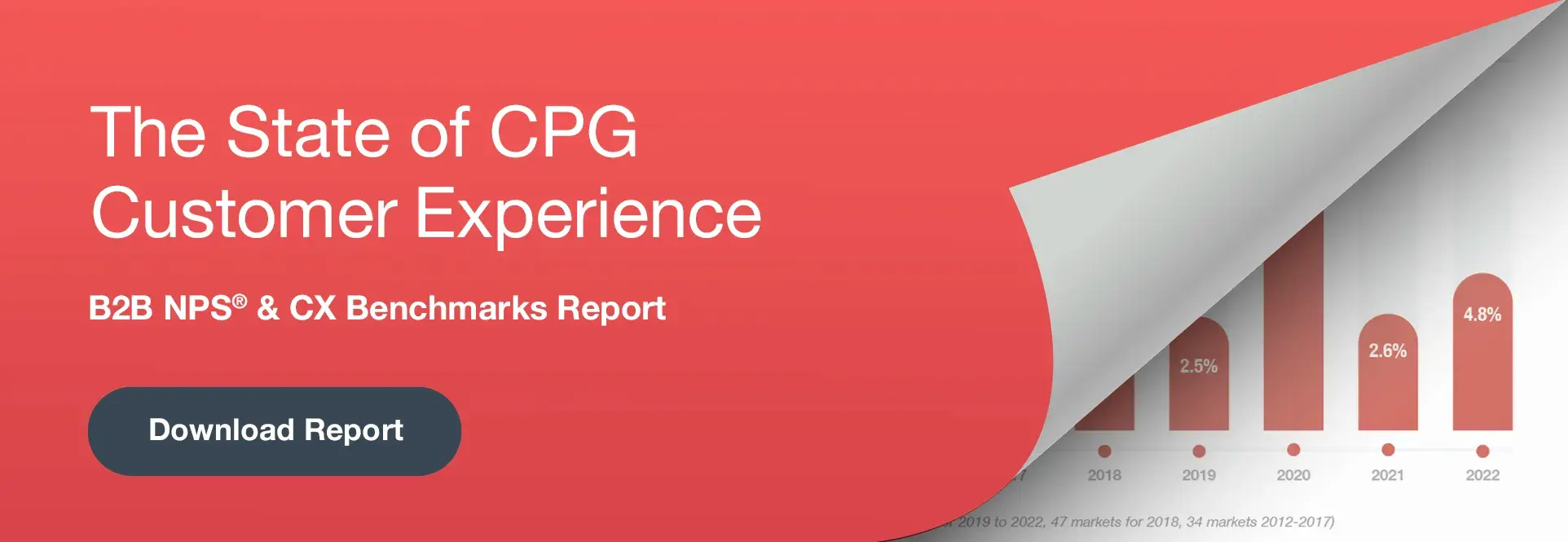
- Customer Experience Focus: Using CustomerGauge, they prioritize improving customer experiences by tracking customer sentiment over time and providing personalized solutions for various customer needs, across all touchpoints.
- Digital Transformation as Core Strategy: Coca-Cola LATAM fully integrates digital transformation into its business operations, treating it as a fundamental part of their strategy, not just a separate initiative. This approach is crucial in delivering consistent experiences across their vast network in Latin America.
- Leveraging Generative AI (GenAI): Coca-Cola sees GenAI as a transformative tool for productivity, helping scale operations in ways similar to the impact of the industrial revolution.
- Human Relationships Matter: Success relies heavily on building authentic, trust-based relationships with both vendors and customers. Listening to and acting on customer feedback helps Coca-Cola stay in tune with their needs.
Digital Transformation as a Core Business Strategy
Paulo highlighted a common misstep CPG companies make: treating digital transformation as an isolated effort rather than integrating it into the heart of their business operations.
For Coca-Cola LATAM, digital transformation is not an add-on but a key enabler of innovation across processes, decision-making, and routines.
This shift is especially important in a region as diverse as Latin America, where Coca-Cola operates across dozens of bottlers and countries. Ensuring consistent experiences within such a wide network requires transformation to be woven into every aspect of the business.
This strategic integration has encouraged Coca-Cola LATAM to rethink how it operates.
By moving from offline to online processes, the company has unlocked new efficiencies and capabilities, helping to remain agile and responsive to customer needs — a huge competitive advantage.*
Starting Small for Sustainable Success
Another lesson Paulo shares is the importance of starting small.
This approach can be difficult for large companies, especially when trying to convince senior management to trust the process.
Large, ambitious projects often come with high risks.
Coca-Cola’s approach involves identifying specific, tangible challenges and addressing them through digital solutions.
This method not only minimizes risk but allows the organization to build momentum with smaller, measurable successes.
Generative Artificial Intelligence Is Scaling Productivity in Consumer Packaged Goods
One of the most prominent opportunities within digital transformation is the rise of Generative AI (GenAI).
Paulo referenced Satya Nadella, the CEO of Microsoft, who described GenAI as the lever for "massive productivity increase."
Coca-Cola LATAM is positioning itself to harness this technology as a cornerstone of its transformation, enabling the company to scale up productivity in unprecedented ways.
GenAI has the potential to unlock new scales of efficiency, which according to Paulo, Coca-Cola LATAM aims to leverage.
“If you look at how it was in the Industrial Revolution, we didn’t have scale. I think right now, we can see that GenAI within digital transformation is an enabler for massive-scale productivity because [AI] can be used in any format.”
Enhancing B2B Customer Experience at Scale
As we have shared time and time again, companies succeed when the customer is at the center of everything they do.
Coca-Cola’s transformation efforts are a great example of a renewed focus on B2B customer experience.
Paulo emphasizes that experience isn’t just about service; it’s about how the customer feels.
Digital tools allow the company to continuously monitor and assess customer sentiment over time, providing more than just a snapshot.
By focusing on the "movie" of the customer experience, rather than a singular point in time, Coca-Cola LATAM can address issues in real-time and ensure consistent, positive interactions across all touchpoints.
This approach is particularly important when considering Coca-Cola’s vast network of outlets — every single outlet comes with its own unique set of challenges.
Real-time feedback allows the company to tailor its solutions to these challenges and create a more personalized, satisfactory experience for everyone involved.
The Importance of Human Relationships in Consumer Packaged Goods
Coca-Cola’s success in digital transformation also hinges on recognizing that business relationships are human relationships.
Whether it’s interactions between sales teams and vendors or brands and consumers, the key to success lies in building trust and authenticity.
As Paulo noted from his early career experiences in sales, relationships based on transparency and mutual understanding drive success.
By listening to customers and adapting based on feedback, Coca-Cola LATAM ensures they are always in tune with what matters most.
The beverage company utilizes Net Promoter Score (NPS) because while it is a simple metric, it provides powerful insights to act quickly on and effectively improve relationships.
Maintain a Sense of Urgency at Year One, As You Did on Day One
Paulo’s final insights offer valuable advice for any organization seeking to transform.
First, he advocates for maintaining a "Day One" or "Year One" mentality, where the sense of urgency and adaptability remains as strong at the first year mark as it did on the first day of the journey.
This mindset prevents complacency and encourages constant innovation.
Secondly, fostering a learning culture is crucial (why we have resources like CustomerGauge Academy!) By remaining curious and open to new ideas, businesses can navigate the complexities of transformation with greater clarity.
Coca-Cola LATAM exemplifies this by continuously adapting and learning from both successes and setbacks.
We are humans — there is no company, there are humans.
At the end of the day, you know Paulo, Adam, and so on. That's why creating a true, honest relationship between humans is what differentiates one company from the other.
If you can't connect [on a human level], you never bring the conversation to the next level.
Full Recording: The Global CPG Experience Summit
Transform Your Business With a World-Class Customer Experience Program
By embedding digital initiatives into the core business strategy, starting small, focusing on B2B customer experience, and prioritizing relationships, Coca-Cola has set a standard for how to successfully navigate the complexities of modern business.
As companies worldwide look to leverage new technologies like GenAI, Coca-Cola’s experience shows that true transformation is not just about technology, it's about people, relationships, and creating lasting value across the entire organization.
